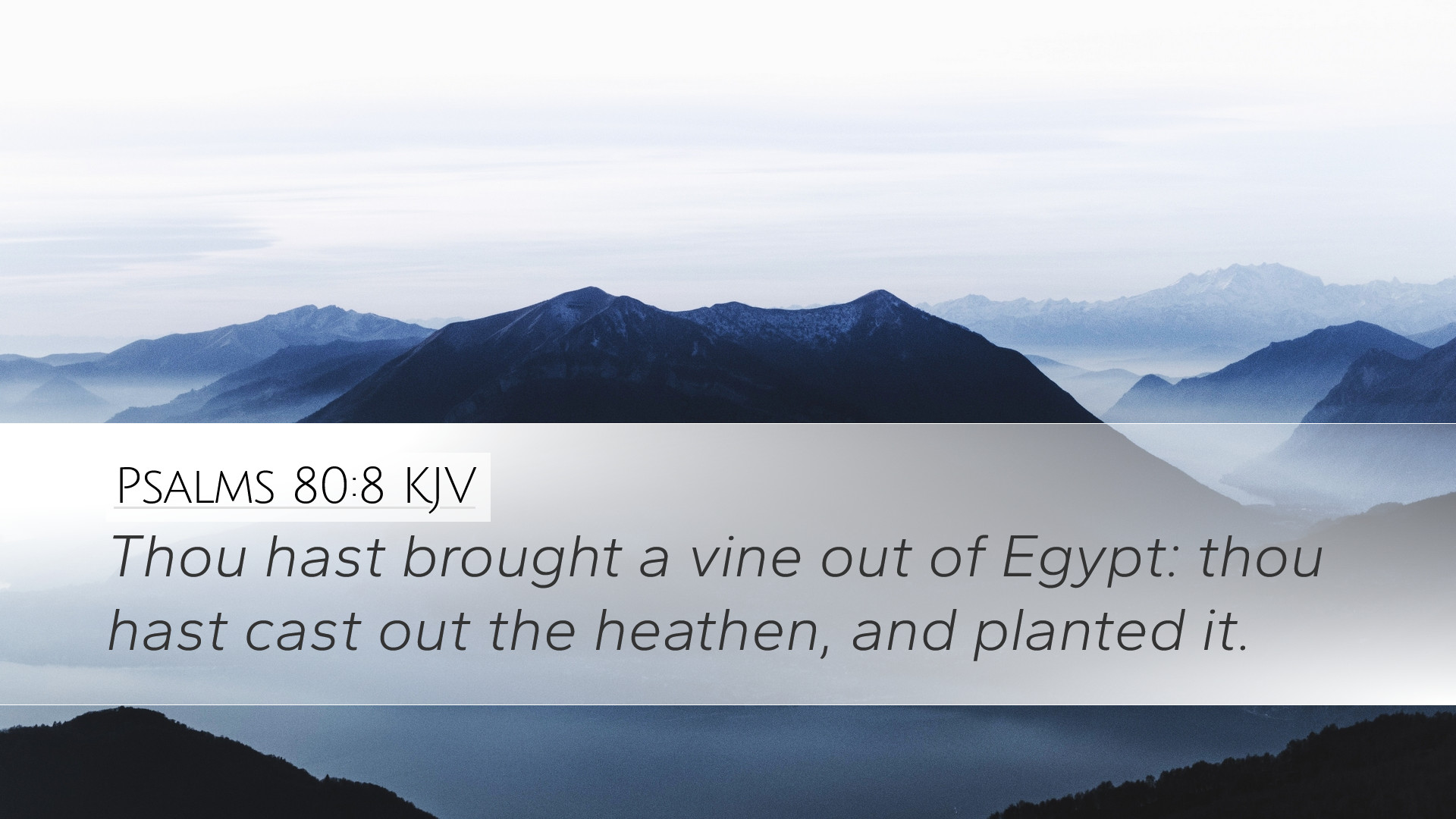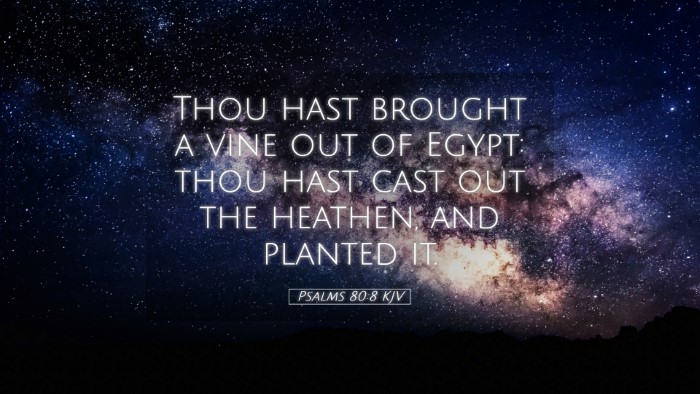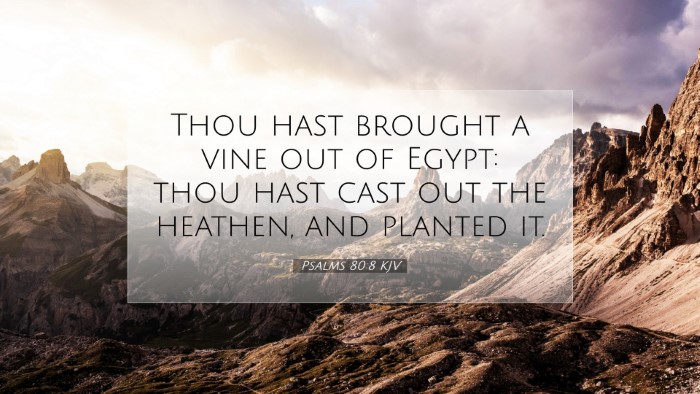Psalms 80:8 - Commentary and Insights
Verse: "Thou hast brought a vine out of Egypt: thou hast cast out the heathen, and planted it."
Introduction
The verse Psalms 80:8 serves as a vivid metaphorical representation of God's providential care for His people, likening the nation of Israel to a vine that has been carefully nurtured and tended by the divine Gardener. This commentary seeks to explore the rich theological truths embedded in this verse, drawing insights from renowned public domain scholars.
Historical Context
This verse reflects on the historical deliverance of the Israelites from Egypt, highlighting God's active role in liberating His chosen people. The imagery of the vine reflects both the fragility of Israel and the enduring commitment of God to ensure their growth and prosperity amidst various challenges.
Matthew Henry's Insights
According to Matthew Henry, this verse illustrates the "nurturing care" God exercises over His people. He emphasizes that God does not merely liberate Israel from bondage but also actively cultivates their national identity. By bringing them out of Egypt, God establishes them as a unique nation, a chosen people, and a special possession.
- Divine Deliverance: God's action of bringing the vine out of Egypt highlights His power and faithfulness.
- Heathens Cast Out: The reference to casting out the heathen indicates God's judgment on those who would oppose His plans.
Albert Barnes' Perspective
Albert Barnes elaborates on the metaphor of the vine, identifying it with the nation of Israel. He notes that the vine’s journey from Egypt to Canaan is a testament to God's provision. The act of planting the vine suggests not only care but also intent, as God establishes Israel in a fruitful land. Barnes highlights that this vine is meant to flourish and produce good fruit, symbolizing Israel's role in reflecting God's glory.
- Symbol of Growth: The vine is a symbol of growth and productivity inherent in God's plan for His people.
- Planting in Favor: The act of planting illustrates an intimate relationship between the Creator and His creation, establishing a covenantal bond.
Adam Clarke's Commentary
Adam Clarke reinforces the notion that God’s choice of Israel as His vineyard reveals both privilege and responsibility. He explains that God’s deliverance was not an end in itself; rather, it was aimed at producing a people who would embody His standards and reflect His character. Clarke points out the challenges Israel would face, being a vine among thorns, afflicted by the nations around them. Yet, he affirms the assurance that God will defend and help them flourish despite opposition.
- Privilege and Responsibility: God's choice involves immense privilege but also calls for obedience and faithfulness.
- God’s Protection: Clarke assures that God's protective hand remains over His people, promising sustenance in adversity.
Theological Implications
This verse prompts several theological reflections pertinent to pastoral ministry, theological discourse, and personal faith.
- God's Sovereignty: The metaphor of God as the gardener illustrates His sovereignty over history and His people. There is a divine purpose in their journey from bondage to blessing.
- Covenantal Relationship: This vine imagery reinforces the covenantal relationship; it is not a mere transaction but a deep relational commitment characterized by love and fidelity.
- Call to Bearing Fruit: As God’s covenant people, believers today are called to bear fruit that honors Him, much like Israel was intended to do.
Applications for Today
The insights from Psalms 80:8 yield many practical applications for individuals and congregations:
- Faith in Deliverance: Just as Israel was delivered from Egypt, we can trust in God's power to deliver us from sin and other forms of bondage in our lives.
- Identity in Christ: Understanding ourselves as the vine of God connects us to our identity in Christ, wherein we are called to grow and flourish for His purposes.
- Perseverance in Trials: The history of Israel reminds us that even amidst adversity, God’s hand is upon His people; we are encouraged to persevere knowing He nurtures us.
Conclusion
Psalms 80:8 serves as a profound reminder of God's unfailing love and commitment to His chosen people. Through historical reflection, theological insight, and practical applications, pastors, students, theologians, and scholars alike can find encouragement and purpose in their faith journey. As we meditate on this passage, let us embrace our calling to be the living vine, flourishing in our relationship with God and impacting the world for His glory.


